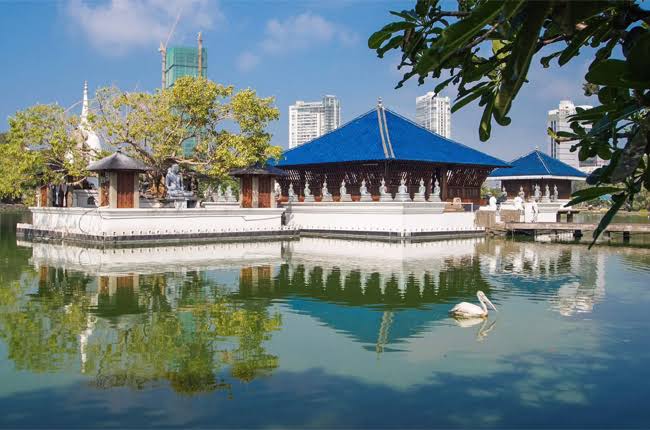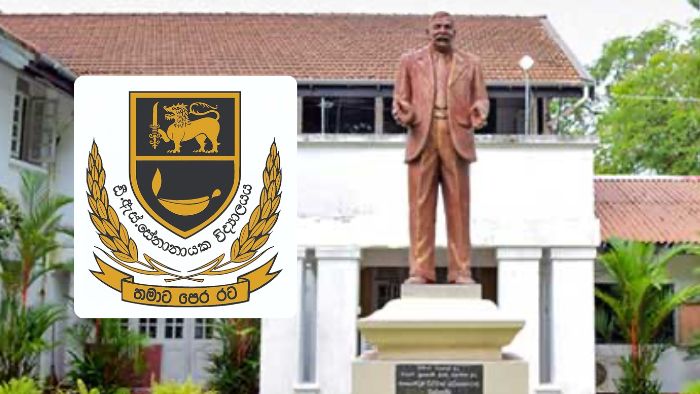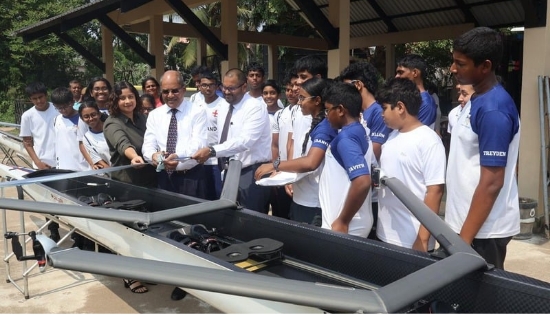Degrees: Charting a Course for Academic and Professional Excellence

For Sri Lankan students who have completed or are awaiting their Advanced Level (A/L) examination results, pursuing a degree remains a traditional and esteemed pathway in higher education. Degrees offer comprehensive knowledge and open doors to a multitude of career opportunities.
Understanding Degree Programs
Degree programs are extensive courses of study offered by universities, typically spanning three to four years. They provide an in-depth understanding of a chosen field, encompassing both theoretical frameworks and practical applications. Degrees are often prerequisites for professional careers and advanced studies.
Advantages of Obtaining a Degree
- Comprehensive Knowledge: Degree programs cover a broad spectrum of subjects within a discipline, fostering critical thinking and analytical skills.
- Career Opportunities: Many professions require a bachelor’s degree as a minimum qualification, making it essential for career advancement.
- Higher Earning Potential: Statistically, degree holders often have access to better-paying jobs compared to those without.
- Pathway to Further Studies: A bachelor’s degree is a stepping stone for postgraduate education, including master’s and doctoral programs.
Popular Degree Fields in Sri Lanka
- Medicine and Health Sciences: Degrees in medicine, dentistry, and nursing are highly sought after, given the global demand for healthcare professionals.
- Engineering: Specializations in civil, mechanical, electrical, and electronic engineering cater to various infrastructural and technological needs.
- Business and Management: Programs focusing on finance, marketing, and human resource management prepare students for the corporate world.
- Information Technology: Degrees in computer science and software engineering align with the digital transformation era.
Considerations for Prospective Degree Students
- Accreditation: Verify that the university and the specific program are recognized by educational authorities.
- Curriculum and Faculty: Research the course structure and the qualifications of the teaching staff to ensure quality education.
- Facilities and Resources: Access to laboratories, libraries, and online resources enhances the learning experience.
- Financial Investment: Consider tuition fees and explore scholarship opportunities or financial aid options.
Pursuing a degree is a significant commitment that offers substantial rewards.
Related News
D. S. Senanayake College Marks 59 Years, Reaffirms ‘Country Before Self’ Legacy
"Country Before Self", an immortal slogan entrenched in the heartbeats of every Senanayakian, stands as the guiding principle of D. S. Senanayake…
Read MorePaper Plane Lands in Galle: A Mini Lit Fest with Nifraz Rifaz
Galle Fort is set to welcome a unique literary experience this weekend as Paper Plane Lands in Galle, a two-day mini literature…
Read MoreGateway Expands Fleet to Further Strengthen Its Rowing Programme
Gateway Rowing marked a historic milestone with the acquisition of two state-of-the-art Falcon Racing boats: a quad-four convertible, Dreadnought, and a single…
Read MoreCISD Launches to Transform Sales Education and Build Sri Lanka’s Next Generation of Sales Professionals
Sri Lanka has long produced talented, resilient, and hardworking sales professionals across every major industry. Yet for decades, the sales function—despite being…
Read MoreRead • Watch • Learn
Stories often teach us more than textbooks ever could. This EduWire series explores books, films and series as spaces of learning –…
Read MoreCourses
-

The future of higher education tech: why industry needs purpose-built solutions
For years, Institutions and education agencies have been forced to rely on a patchwork of horizontal SaaS solutions – general tools that… -

MBA in Project Management & Artificial Intelligence – Oxford College of Business
In an era defined by rapid technological change, organizations increasingly demand leaders who not only understand traditional project management, but can also… -

Scholarships for 2025 Postgraduate Diploma in Education for SLEAS and SLTES Officers
The Ministry of Education, Higher Education and Vocational Education has announced the granting of full scholarships for the one-year weekend Postgraduate Diploma… -

Shape Your Future with a BSc in Business Management (HRM) at Horizon Campus
Human Resource Management is more than a career. It’s about growing people, building organizational culture, and leading with purpose. Every impactful journey… -

ESOFT UNI Signs MoU with Box Gill Institute, Australia
ESOFt UNI recently hosted a formal Memorandum of Understanding (MoU) signing ceremony with Box Hill Institute, Australia, signaling a significant step in… -

Ace Your University Interview in Sri Lanka: A Guide with Examples
Getting into a Sri Lankan sate or non-state university is not just about the scores. For some universities' programmes, your personality, communication… -

MCW Global Young Leaders Fellowship 2026
MCW Global (Miracle Corners of the World) runs a Young Leaders Fellowship, a year-long leadership program for young people (18–26) around the… -

Enhance Your Arabic Skills with the Intermediate Language Course at BCIS
BCIS invites learners to join its Intermediate Arabic Language Course this November and further develop both linguistic skills and cultural understanding. Designed… -

Achieve Your American Dream : NCHS Spring Intake Webinar
NCHS is paving the way for Sri Lankan students to achieve their American Dream. As Sri Lanka’s leading pathway provider to the… -

National Diploma in Teaching course : Notice
A Gazette notice has been released recently, concerning the enrollment of aspiring teachers into National Colleges of Education for the three-year pre-service… -

IMC Education Features Largest Student Recruitment for QIU’s October 2025 Intake
Quest International University (QIU), Malaysia recently hosted a pre-departure briefing and high tea at the Shangri-La Hotel in Colombo for its incoming… -

Global University Employability Ranking according to Times Higher Education
Attending college or university offers more than just career preparation, though selecting the right school and program can significantly enhance your job… -

Diploma in Occupational Safety & Health (DOSH) – CIPM
The Chartered Institute of Personnel Management (CIPM) is proud to announce the launch of its Diploma in Occupational Safety & Health (DOSH),… -

Small Grant Scheme for Australia Awards Alumni Sri Lanka
Australia Awards alumni are warmly invited to apply for a grant up to AUD 5,000 to support an innovative project that aim… -

PIM Launches Special Programme for Newly Promoted SriLankan Airlines Managers
The Postgraduate Institute of Management (PIM) has launched a dedicated Newly Promoted Manager Programme designed to strengthen the leadership and management capabilities…
Newswire
-

Sri Lanka’s T20 World Cup 2026 squad officially submitted to ICC
ON: February 1, 2026 -

Severe lightning alert for 7 districts
ON: February 1, 2026 -

Govt committed to clearing illegal settlements in tank reserves: Minister Lalkantha
ON: February 1, 2026 -

Buddha relics from Gujarat to be exhibited at Gangaramaya Temple from February 4
ON: February 1, 2026 -

ICC T20 World Cup trophy arrives in Jaffna today: full schedule
ON: February 1, 2026









